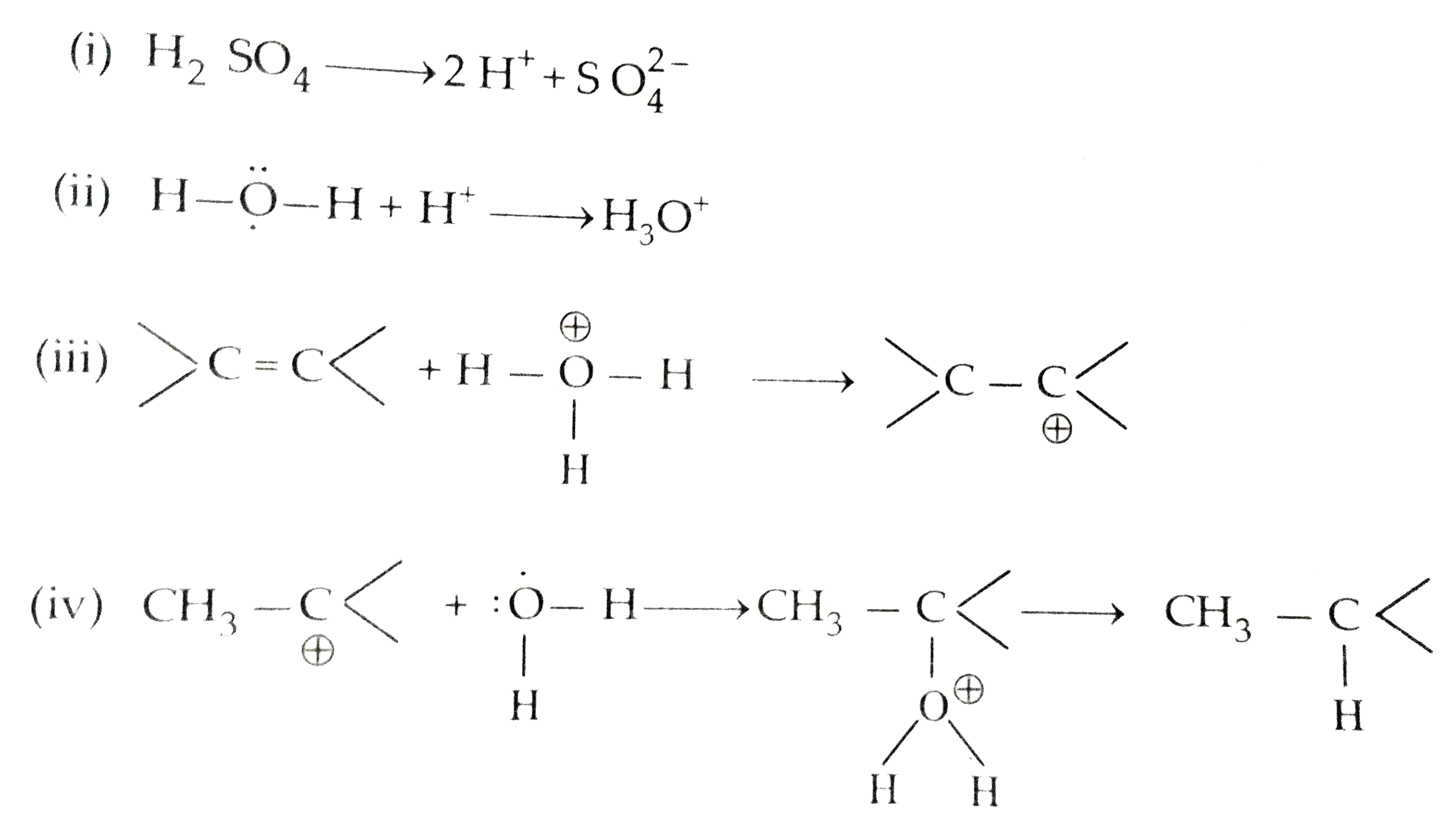Explain the mechanism of acid catalysed of an alkene to form corresponding alcohol.
Alkenes engage in an acid catalysed hydration reaction using concentrated sulphuric acid as a catalyst that gives usually secondary or tertiary alcohols . Alkenes reacts with NBS and water in halohydrin formation reaction . The formation of secondary alcohol via reduction and hydration is shwon :
(i)
(ii)

Alkene reacts with to form a carbocation which reacts with to form alcohol.
Topper's Solved these Questions
Similar Questions
Explain the mechanism of electrophilic addition reactions of alkenes.
View SolutionExplain the mechanism of the following reactions :
(i) Addition of Grignard reagent to a carbonyl compound forming an adduct followed by hydrolysis.
(ii) Acid catalysed dehydration of alcohol forming an alkene.
(iii) Acid catalysed hydration of an alkene forming an alcohol.
View Solution
Knowledge Check
In the acid -catalysed hydration of an alkene , the intermediate formed is
Aa carbeneBan alkyl cationCan alkyl radicalDan alkanide ionWhich of the following carboxylic acids is not reduced to the corresponding 1∘ alcohol by LiAlH4?
ACH3CH(CH3)COOHB(Z)−CH3CH=CHCH2COOHCp−O2NC6H4COOHDCyclohexanecarboxylic acid
Explain mechanism of dehysration of alcohols to give alkenes.
View SolutionExplain the mechanism of esterification carboxylic acids.
View SolutionThe boiling points of aldehydes and ketones are lower than that of the corresponding alcohols and acids. Why?
View SolutionBoiling points of carboxylic acids are less / more than the corresponding alcohols.
View SolutionGive a mechanism for the acid-catalysed dehydration of ethyl alcohol to form diethyl ether.
View SolutionExplain, why are boiling points of carboxylic acids higher than corresponding alcohols.
View Solution

